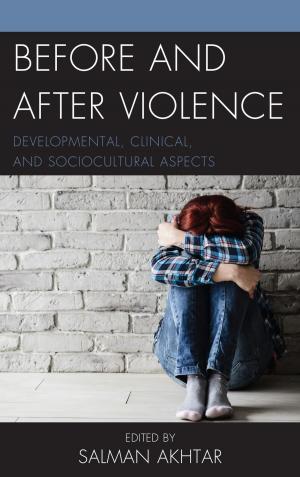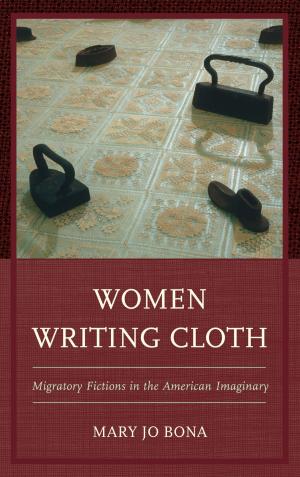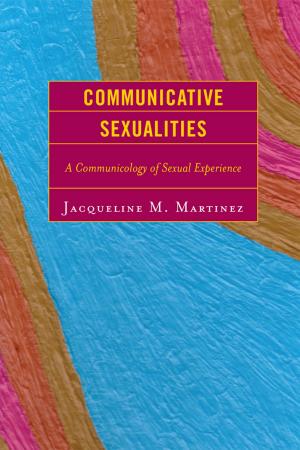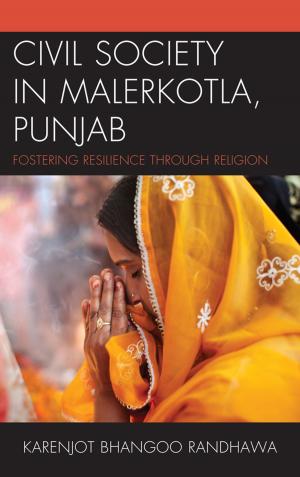Disability and Academic Exclusion
Voicing the Student Body
Nonfiction, Social & Cultural Studies, Social Science, Disability, Fiction & Literature, Literary Theory & Criticism| Author: | E. R. Weatherup | ISBN: | 9781498520027 |
| Publisher: | Lexington Books | Publication: | August 14, 2017 |
| Imprint: | Lexington Books | Language: | English |
| Author: | E. R. Weatherup |
| ISBN: | 9781498520027 |
| Publisher: | Lexington Books |
| Publication: | August 14, 2017 |
| Imprint: | Lexington Books |
| Language: | English |
Disability and Academic Exclusion interrogates obstacles the disabled have encountered in education, from a historical perspective that begins with the denial of literacy to minorities in the colonial era to the later centuries’ subsequent intolerance of writing, orality, and literacy mastered by former slaves, women, and the disabled. The text then questions where we stand today in regards to the university-wide rhetoric on promoting diversity and accomodating disability in the classroom. Brief studies on the devaluation of authenticity and literacy in the works of Sojourner Truth, Phillis Wheatley, and Helen Keller serve to demonstrate how earlier cultural viewpoints undermined the teachability of women, the disabled, and people of color, and to question if these viewpoints have been redressed or whether they are maintained in the academy’s discursive relationship to educating the disabled. The guiding questions ask if colleges today recognize the exclusionary practices inherent in the category of disability, whether the delineation of disability in the classroom parallels earlier isolating minority categories across intersectional subjectivities and, accepting disability as a category that is necessary in order to protect civil rights, whether disability can be incorporated more inclusively in what E.R. Weatherup has termed a constellation of student learners. The text concludes that the academy must confront the persistent historical situating of disability as one of deficiency in order to bring disability into the classroom, and at the same time it must engage with a humanistic and humanizing vocabulary, allowing for more voices to be heard from the embodied, subjective experiences of the disabled student body.
Disability and Academic Exclusion interrogates obstacles the disabled have encountered in education, from a historical perspective that begins with the denial of literacy to minorities in the colonial era to the later centuries’ subsequent intolerance of writing, orality, and literacy mastered by former slaves, women, and the disabled. The text then questions where we stand today in regards to the university-wide rhetoric on promoting diversity and accomodating disability in the classroom. Brief studies on the devaluation of authenticity and literacy in the works of Sojourner Truth, Phillis Wheatley, and Helen Keller serve to demonstrate how earlier cultural viewpoints undermined the teachability of women, the disabled, and people of color, and to question if these viewpoints have been redressed or whether they are maintained in the academy’s discursive relationship to educating the disabled. The guiding questions ask if colleges today recognize the exclusionary practices inherent in the category of disability, whether the delineation of disability in the classroom parallels earlier isolating minority categories across intersectional subjectivities and, accepting disability as a category that is necessary in order to protect civil rights, whether disability can be incorporated more inclusively in what E.R. Weatherup has termed a constellation of student learners. The text concludes that the academy must confront the persistent historical situating of disability as one of deficiency in order to bring disability into the classroom, and at the same time it must engage with a humanistic and humanizing vocabulary, allowing for more voices to be heard from the embodied, subjective experiences of the disabled student body.















